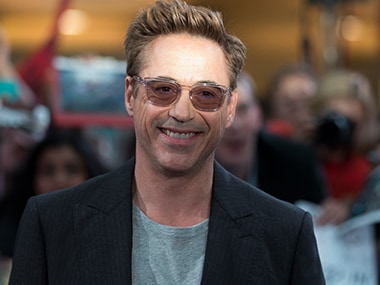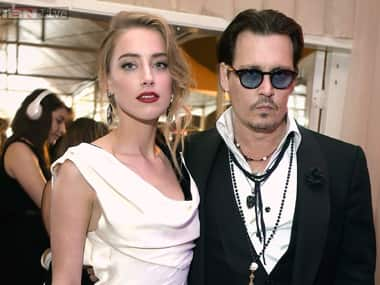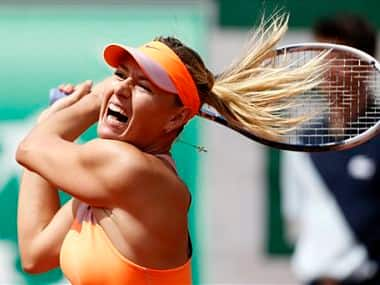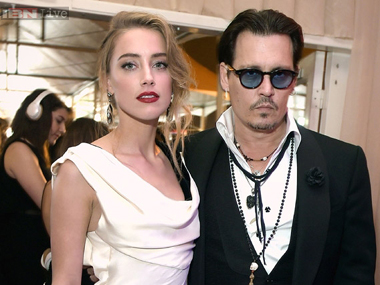The year was 1988. A movie called 1969 released, about the Vietnam War and the social tensions between supporters and protesters in small-town America. The cast included Kiefer Sutherland and Robert Downey Jr — long before their Jack Bauer and Tony Stark days, and Winona Ryder — fresh off playing the iconic Lydia Deetz in Tim Burton’s goth classic Beetlejuice. [caption id=“attachment_2827334” align=“alignleft” width=“380”]  Robert Downey Jr. Image from AFP[/caption] 1969 was nothing exceptional, a murky reflection of the Vietnam War shrouded in a fog of nostalgia. Fast forward 20 years to 2008: Robert Downey Jr has a blockbuster year with Tropic Thunder and Iron Man, on his way to becoming the highest paid actor in the world, while Winona Ryder had another mediocre year starring in an indie film that didn’t set any pulses racing. Why this comparison? Because both Downey and Ryder were Hollywood royalty gone awry and looking to make comebacks. Downey was a critically acclaimed actor with multiple arrests for drug-related charges and possession of weapons, while Ryder was the cool ’90s poster girl and a two-time Oscar-nominated actor convicted for a $5,000 shoplifting incident. Because both has been blacklisted in 2005, when Woody Allen wanted to cast them in his film Melinda and Melinda, he was unable to do so because he couldn’t get them insured. Because while Downey made $80 million last year, conversations about Winona Ryder (15 years after the shoplifting incident) still revolve around her “sticky fingers.” Because their career graphs post their “comebacks” seem vastly different and mismatched for some reason. Welcome to Hollywood! Is public perception and their acceptance of “fallen” male and female stars so different? Robert Downey Jr tops the list of actors that have successfully gained popularity and success coming back from rock bottom. Or sometimes, from 50 feet of crap underneath rock bottom. Almost every such list reads like an ode to the league of male actors, of their strength amid adversity, the ways in which they have redefined their careers; examples include Matthew McConaughey going from being the smooth Southern rom-com king to an Oscar-winning bet and Mickey Rourke, returning from his “boxing career” and his botched plastic surgeries to be an Oscar contender with The Wrestler. Each list also includes a slight smattering of female comebacks, most notably Drew Barrymore’s turn as an adorable child star gone wild turned to one of America’s sweethearts. Are there such few female actors bouncing back successfully from destructive career moves? Are film-makers hesitant to give female actors the second chance that so many of their male colleagues are blessed with? The ongoing Johnny Depp-Amber Heard saga puts this into perspective. Here’s a critically acclaimed and popular star going from being a rebel heartthrob to unkempt hobo in a few years, who’s now accused of domestic violence by his wife of 15 months. Despite his last few movies being commercial duds, Depp still carries the mega-successful Pirates of the Caribbean franchise on his shoulders. What do such allegations mean for a male star of Depp’s stature? Not much, apparently. [caption id=“attachment_2827322” align=“alignright” width=“380”]  Amber Heard and Johnny Depp. Image from IBN[/caption] Sure, Disney is worried about the impact this might have on his franchises; his latest big-budget sequel, Through The Looking Glass (in which Alice goes on a journey to discover why Depp’s character, the Mad Hatter, is acting madder than usual. Coincidence perhaps?) has “tanked” at the box office, although the $176 million it’s made so far is low only compared to Disney’s juggernaut over the past 12 months, which included Star Wars: The Force Awakens, Zootopia, The Jungle Book and Captain America: Civil War. And sure, women’s organisations have called for fashion powerhouse Dior to reconsider Depp as the face of Dior’s men’s fragrance (which is called “Sauvage”, btw. Another coincidence?), but there’s been no official word from Dior to convey they’re giving this any thought. During all of this, Depp is happily traversing Europe with his cronies. No sweat! On the other hand, there’s Winona Ryder. Or even less-heralded starlets like Lindsay Lohan and Amanda Bynes. Both were successful child actors who had very severe, very public meltdowns that seemed like cries for help. Neither has managed to bounce back in any manner even remotely resembling their previous B-list statuses. This seems to be the trend not just in Hollywood. [caption id=“attachment_2827344” align=“alignleft” width=“380”]  Maria Sharapova. Image from AP[/caption] Many sports stars have found themselves spiralling down the wayward steps of addiction, abuse or violence, and reactions to their behaviour follow a similar pattern. Despite his infidelity scandal in 2010, when Accenture, AT&T, and General Motors ended their sponsorship deals with him, Tiger Woods still made over $50 million in endorsements last year, from big-name brands like Nike and Rolex. And he’s not even in the top 100 in golf rankings! Nike, however, didn’t extend the same courtesy to Maria Sharapova this year. Mike Tyson, who was convicted of rape in 1991 and sentenced to 10 years, only served 36 months due to “good behavior.” He returned to the boxing ring where his good behaviour was on full display during his ear-biting incident against Evander Holyfield. Nowadays, Tyson makes celebrity appearances in multimillion-dollar-raking Hollywood movies (The Hangover). For a fallen athlete, the way to win back their lost endorsements and improve public opinion is by “being good at sports and winning.” It’s more difficult for entertainers because the actor’s efforts can be moot if the audience isn’t receptive. Which is why female stars and their comebacks are more impressive than their male colleagues’. Which is why Britney Spears’ performance at the recent Billboard Music Awards was so important, returning to live TV nearly 10 years after her head-shaving incident. Which is why Mayim Bialik’s turn as Dr Amy Farrah Fowler on The Big Bang Theory (two decades after playing the dance-and-hats obsessed titular character on Blossom, and then taking time off to get a PhD in neuroscience and having kids) is so important. Which is also why a 90-year-old Betty White’s comeback is so important. Now what we need is a female Bond please. And Winona Ryder heading a billion-dollar movie franchise!
Is public perception and their acceptance of “fallen” male and female stars so different? The ongoing Johnny Depp-Amber Heard saga offers some perspective.
Advertisement
End of Article


)
)
)
)
)
)
)
)
)



